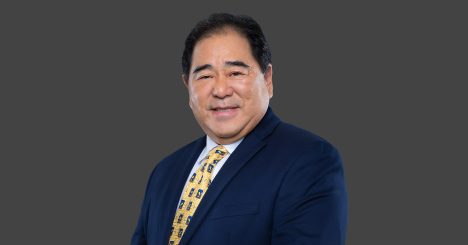The spike in COVID-19 cases and the spread of the Delta variant have led more companies to consider or impose COVID-19 vaccine mandates. Disney, Walmart, Facebook, and Google are among the growing number of companies requiring certain workers to get vaccinated before returning to work. Locally, Bank of Hawaii, Hawaiian Electric Company, Hawaiian Airlines, and most major hospitals have imposed vaccine requirements on their employees. Federal and state governments are also implementing COVID-19 vaccine policies. In July, President Joe Biden announced that federal civilian workers and on-site federal contractors will be required to demonstrate proof of vaccination or agree to recurrent testing and safety protocols. Similarly, Governor David Y. Ige announced that all state workers would need to be vaccinated or undergo weekly testing. The prevalence of these vaccine mandates begs the question: Can employers legally require their employees to obtain the COVID-19 vaccine? The short answer to this question is likely yes, but with certain limitations.
The Equal Employment Opportunity Commission (EEOC) has issued guidance regarding whether employers can require vaccines for employees.[1] Although the guidance does not carry the force of law, it provides welcomed clarity for employers during a chaotic time. The EEOC guidance notes that federal laws “do not prevent an employer from requiring all employees physically entering the workplace to be vaccinated for COVID-19, subject to the reasonable accommodation provisions” of Title VII of the Civil Rights Act of 1964 (Title VII) and the Americans with Disabilities Act (ADA).[2] In other words, an employer can generally require employees who enter the workplace to get vaccinated. However, federal laws, specifically Title VII and the ADA, require an employer to provide reasonable accommodations for employees who because of medical reasons or sincerely held religious beliefs cannot receive the vaccine. The accommodation must be provided unless it poses a direct threat to the health and safety of others or imposes an undue hardship on the employer. Examples of possible accommodations include having an unvaccinated person wear a face mask at work, socially distance from other coworkers or non-employees, obtain occasional COVID-19 tests, or be allowed to telework.
Additionally, employers must also take into account any potential impact that a vaccine mandate may have on certain demographic groups. The EEOC guidance advises that
“[e]mployers should keep in mind that because some individuals or demographic groups may face greater barriers to receiving a COVID-19 vaccination than others, some employees may be more likely to be negatively impacted by a vaccination requirement.”[3] A vaccination requirement cannot be applied in ways that “treats employees differently based on disability, race, color, religion, sex (including pregnancy, sexual orientation, and gender identity), national origin, age, or genetic information, unless there is a legitimate non-discriminatory reason.”[4] Lastly, the EEOC guidance notes that employers are required under the ADA to keep vaccination documents confidential and stored separately from the employee’s personnel files.[5]
Similarly, on August 13, 2021, the Hawai‘i Civil Rights Commission (HCRC) issued an “explanation” regarding whether an employer can require employees to obtain the COVID-19 vaccine. The HCRC “explanation” states that a “vaccination requirement is a safety-based standard that does not on its face discriminate on any of” the bases protected by Hawai‘i fair employment law, Hawai‘i Revised Statutes § 378-2.[6] Put differently, a vaccine mandate in and of itself does not appear to discriminate based on race, sex, including gender identity or expression, sexual orientation, age, religion, color, ancestry, disability, marital status, arrest and court record, reproductive health decision, or domestic or sexual violence victim status.[7] Like the EEOC guidance, the HCRC “explanation” notes that an employer must consider an employee’s request for a reasonable accommodation if the employee is not able to get vaccinated because of a disability or religious beliefs. If the accommodation poses a direct threat to the health and safety of the employee or other employees in the workplace or presents an undue burden, then the employer does not need to provide the requested accommodation. According to the HCRC’s “explanation,” if an employee cannot obtain a vaccination due to a disability or sincerely held religious belief and there is no reasonable accommodation possible, then it “would be lawful for the employer to exclude the employee from the workplace.”[8] The HCRC “explanation” advises that employers should evaluate other federal, state, and local laws before taking adverse action against an unvaccinated employee.
The federal and state guidelines are by no means a one-size-fits all model for employers. Employer imposed COVID-19 vaccine requirements will likely be the subject of future litigation. In the early challenge by 117 employees to Houston Methodist Hospital’s mandatory vaccination policy,[9] the hospital required its employees to get vaccinated or face termination. In their lawsuit, the employees argued that the hospital could not require a vaccine that was only approved for emergency use. The judge rejected this argument and ruled that the employees who brought the lawsuit were “refusing to accept inoculation that, in the hospital’s judgment, will make it safer for their workers and the patients in Methodist’s care.”[10] The employees have filed an appeal with the United States Court of Appeals for the Fifth Circuit. The court’s decision and appeal occurred before full approval of the Pfizer-BioNTech vaccine by the Food & Drug Administration was issued on August 23, so the employees’ argument may be addressed by that authorization and may now be considered moot.
The Houston Methodist Hospital case is just one of many legal challenges to employer imposed vaccine requirements. The legal landscape is evolving at a rapid pace and several lawsuits have been filed challenging COVID-19 vaccine mandates. For example, a federal court rejected a request by students to block a vaccine requirement imposed by Indiana University.[11] A George Mason University law professor filed a lawsuit challenging the university’s COVID-19 policy.[12] A group of Hawai‘i first responders have challenged the vaccination requirements imposed by the State of Hawai‘i and City and County of Honolulu.[13] These lawsuits highlight the legal risks associated with mandatory vaccination policies. To mitigate such risks, employers issuing mandatory vaccination policies should closely review federal and state guidelines. In accordance with these guidelines, employers should clearly identify the scope of the mandatory vaccination policy, the rationale for policy, and a deadline for receiving the vaccination. The EEOC recommends that an employer issuing a mandatory vaccination policy notify all employees that the employer will consider a request for reasonable accommodations on an individualized basis. Employers should provide guidance to employees responsible for handling accommodation requests on how to identify accommodation requests and the procedures for considering accommodation requests. Employers should also take into account the potential impact of a vaccination requirement on its work force. For instance, employers should be mindful of the vaccination rate in the community and the impact a potential vaccine mandate would have on hiring and retaining employees. By way of example, the vaccine mandate imposed by the City and County of Honolulu is predicted to sideline a significant number of unvaccinated first responders.[14] Under certain circumstances, employers could consider less restrictive COVID-19 policies. For example, employers could allow unvaccinated employees to submit to weekly testing and other safety measures rather than impose a strict vaccination requirement. In crafting COVID-19 policies, employers should be aware of the ever changing COVID-19 requirements in their jurisdiction, and should allow for flexibility in their policies.
Footnotes
- EEOC, “What You Should Know About COVID-19 and the ADA, the Rehabilitation Act, and Other EEO Laws,” U.S. Equal Employment Opportunity Commission, May 28, 2021, https://www.eeoc.gov/wysk/what-you-should-know-about-covid-19-and-ada-rehabilitation-act-and-other-eeo-laws.
- EEOC.
- EEOC.
- EEOC.
- EEOC.
- Hawai‘i Civil Rights Commission, “Question: Can an Employer Mandate or Require Employees to Get COVID-19 Vaccination?” State of Hawai’i, August 13, 2021, https://labor.hawaii.gov/hcrc/files/2021/08/Can-an-employer-mandate-or-require-employees-to-get-COVID-19-vaccination-8-11-21.pdf.
- Hawai‘i Civil Rights Commission.
- Hawai‘i Civil Rights Commission.
- Bridges v. Houston Methodist Hospital, No. CV H-21-1774 (S.D. Tex., 2021).
- Bridges, *1.
- Klaassen v. Trustees of Indiana University, No. 1:21 CV-00238 DRL (N.D. Ind., 2021).
- Susan Svrluga, “Law Professor Sues George Mason University, Challenging Covid Vaccine Mandate,” The Washington Post, August 4, 2021, https://www.washingtonpost.com/education/2021/08/04/professor-lawsuit-georgemason-vaccine-mandate/.
- Pelekai v. State of Hawai‘i, No. 1:21 CV-00343 (Haw., 2021).
- Peter Boylan, “Many Honolulu First Responders Ask to Opt out of Vaccine,” Honolulu Star-Advertiser, September 4, 2021, https://www.staradvertiser.com/2021/09/04/hawaii-news/many-first-responders-ask-to-opt-out-of-vaccine/.
This article was published as part of the Fall/Winter 2021 issue of ke kumu, Cades Schutte’s client newsletter. Read the full publication, which explores some of the laws unique to Hawai‘i.





